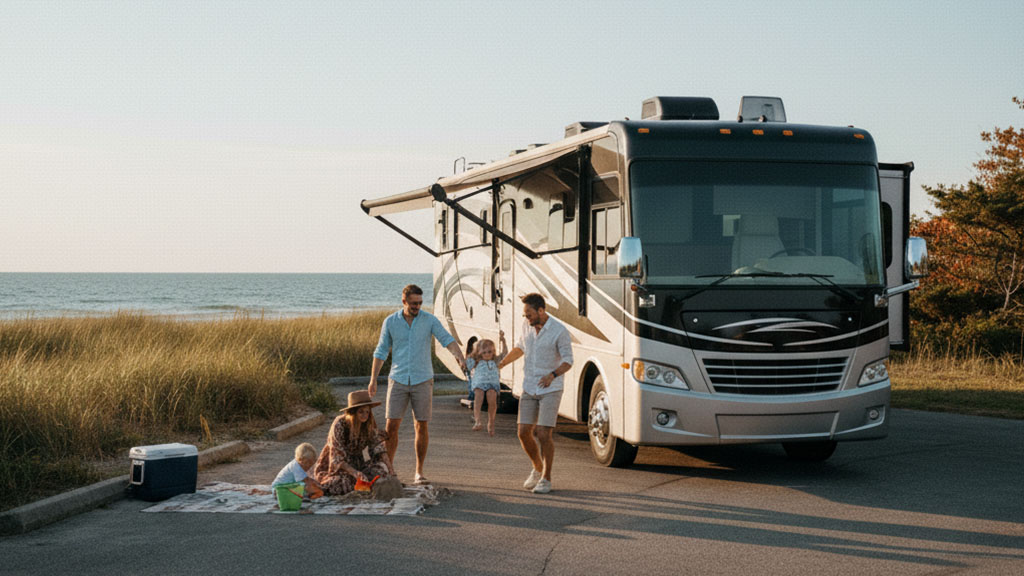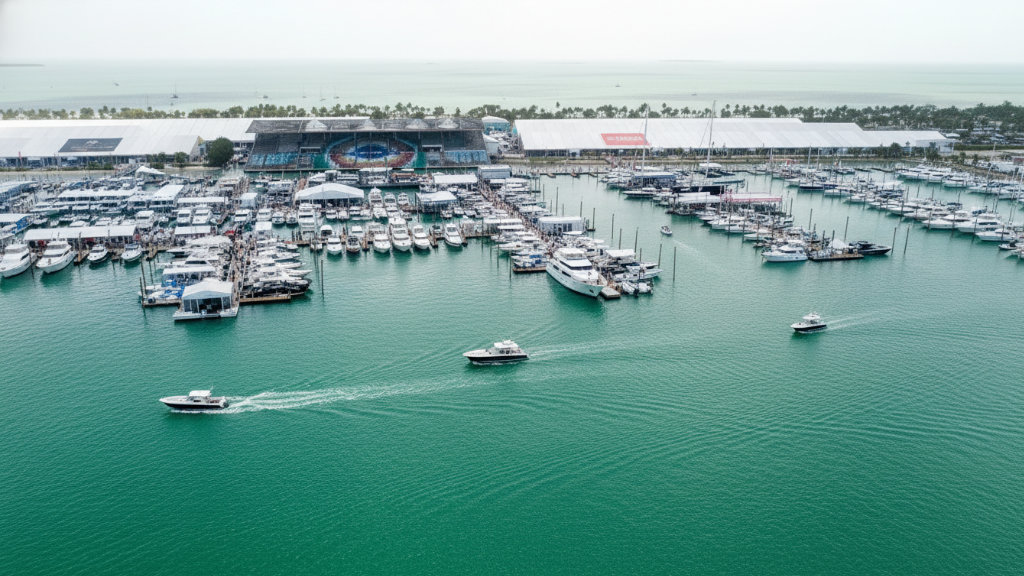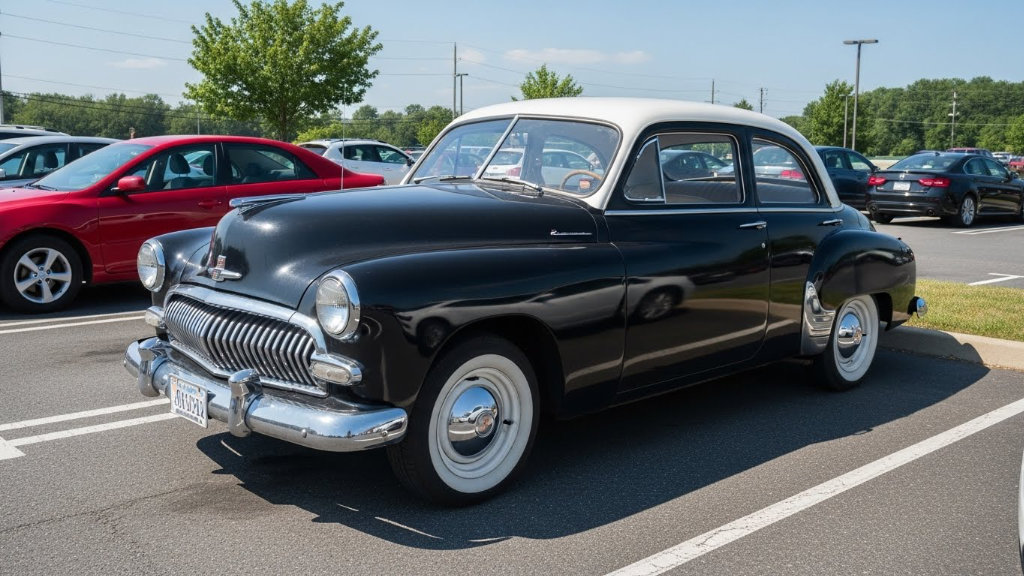There’s a reason RV travel has become such a powerful movement — it’s the freedom to take your home wherever the road leads. From luxury motorhomes to compact campervans, life on the move has never been more appealing.
But that freedom comes with unique challenges. Even experienced drivers can hit snags if they skip the small details that make travel smooth and stress‑free. At Ride Legal, we’ve compiled 19 RV tips every traveler should know to help you avoid common pitfalls and focus on the adventure ahead.
Below, you’ll find ten of our top tips to help you get started. For the complete list with even deeper insights, you can download the full guide at the end of this article.
1. Know Your RV’s Limits
Every RV is different. Before you head out, learn your exact height, width, length, and weight. Low bridges, narrow tunnels, and restricted park roads can turn into expensive mistakes if you aren’t aware of your measurements. A simple laminated cheat sheet in your dashboard can save you from stressful detours.
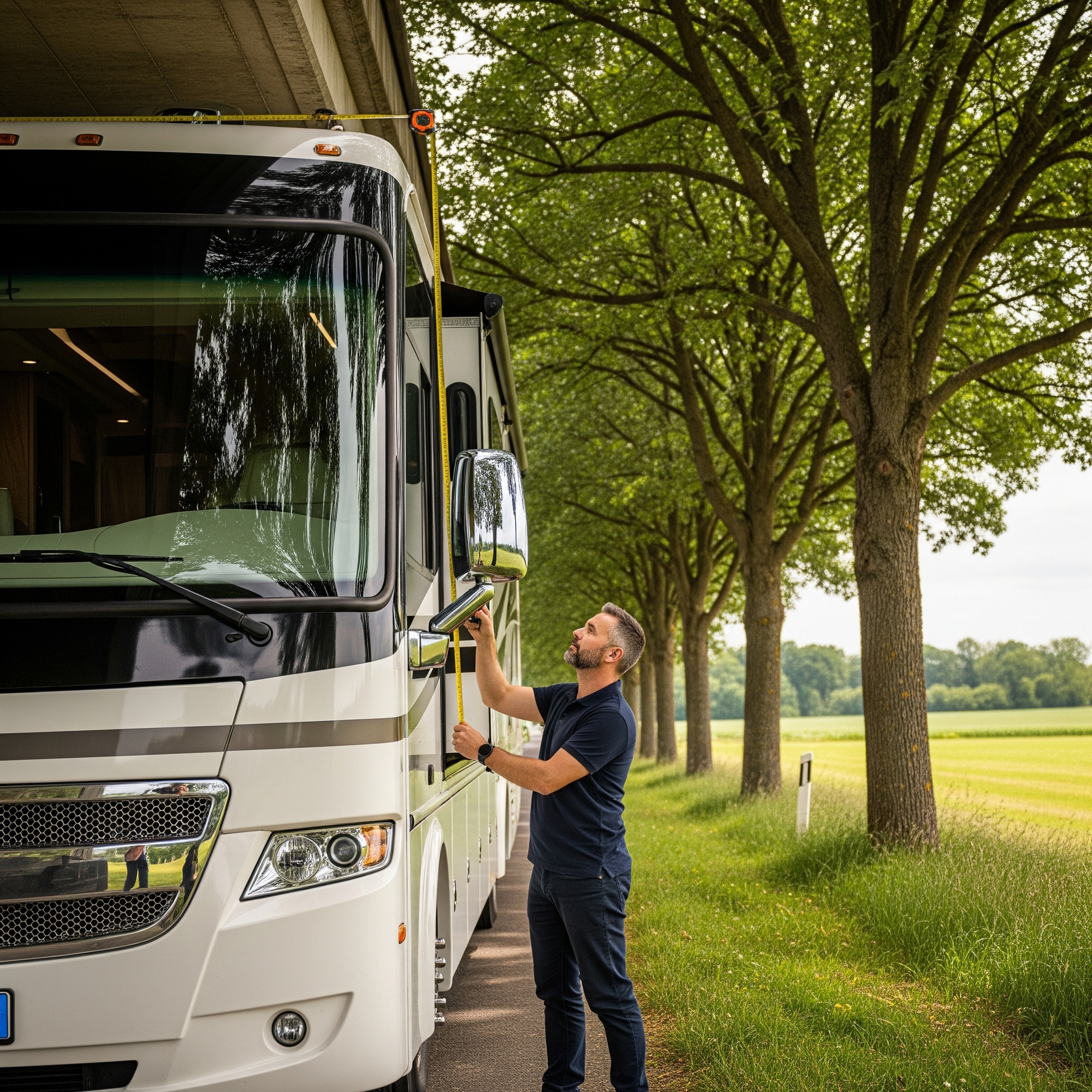
2. Your RV Isn’t Move‑In Ready
A new RV isn’t like a furnished vacation rental. It won’t come with bedding, cookware, hoses, filters, or even basic cleaning supplies. Take time before your first trip to stock your essentials. Having everything from a water pressure regulator to extra fuses ready means fewer last‑minute runs to an unfamiliar store.
3. Plan Meals Like a Pro
Planning meals ahead of time saves money and helps you use storage efficiently. Choose recipes that use overlapping ingredients and can be prepped in advance. Many seasoned travelers swear by slow cookers and instant pots — easy, compact, and perfect for long days on the road.

4. Don’t Overdo It: 250 Miles a Day Max
One of the biggest mistakes new RV travelers make is trying to cover too much ground in one day. Capping your drive time at about 250 miles allows for scenic stops, fuel breaks, and a less exhausting experience overall. RV travel is about the journey, not just the destination.
5. Level First, Then Extend
Before you put out slide‑outs or extend awnings, make sure your RV is perfectly level. This protects your frame, appliances, and personal comfort. Keep leveling blocks and a bubble level handy so that you can make quick adjustments on uneven sites.
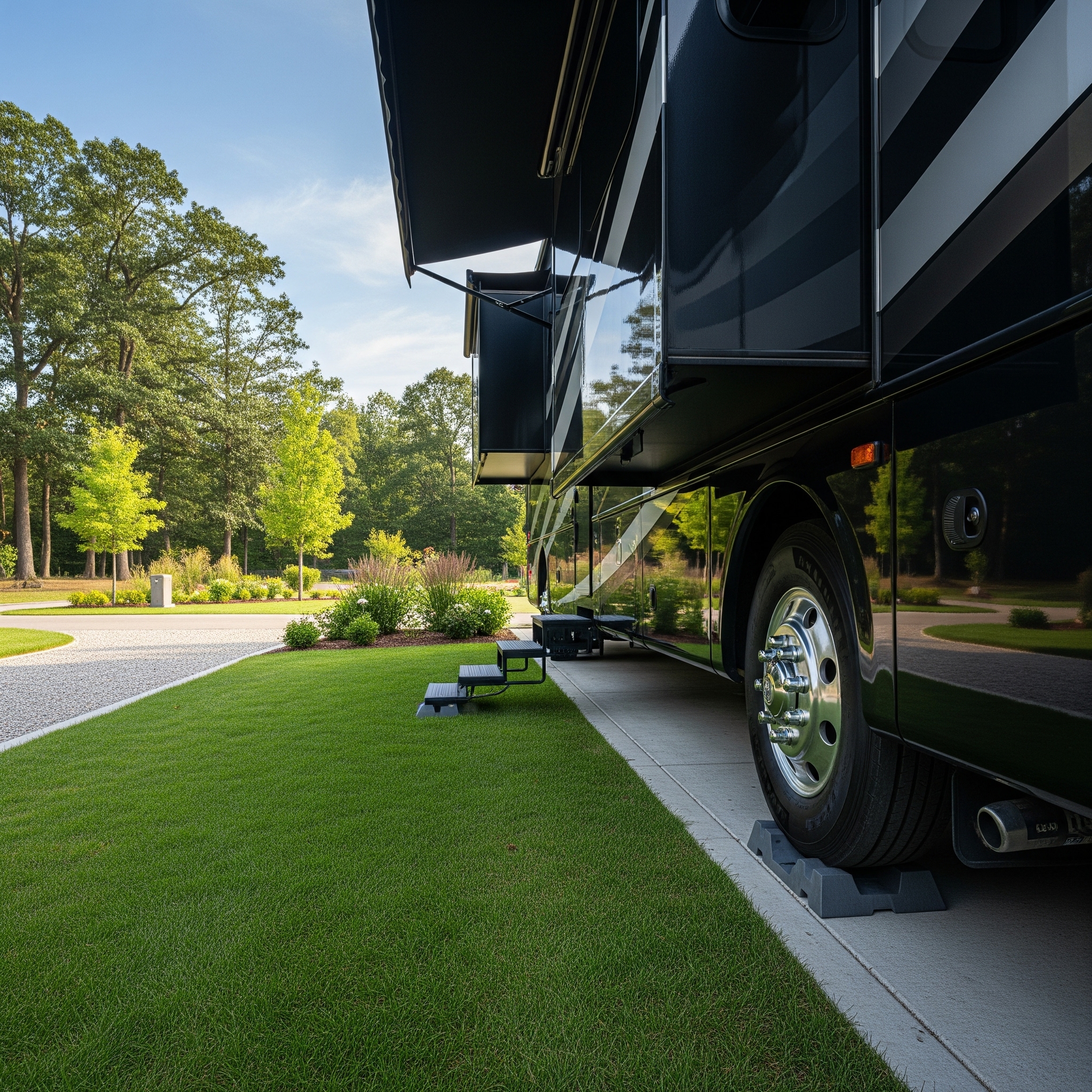
6. Always Do a Walk‑Around
It sounds simple, but a quick walk‑around inspection before leaving any campsite or fuel stop can prevent major issues. Check tire pressure, look for leaks, make sure your steps are up, and confirm all hookups are disconnected. Five minutes can save hours on the side of the road.
7. Pack Light, Pack Smart
Space in an RV is limited, and overloading your rig can lead to safety problems and poor fuel efficiency. Focus on multi‑purpose items, collapsible storage, and securing everything before you roll. A well‑organized interior isn’t just tidy — it’s a safer space to live and travel in.

8. Update Your Registration
Before setting out, ensure your RV’s registration is current and valid. Nothing derails a dream trip like a citation or impound issue in an unfamiliar state. At Ride Legal, we see how complex cross‑state registration can be, but taking care of it in advance keeps you road‑ready with total peace of mind.
9. Fuel Costs Add Up — Plan Ahead
Fuel is a significant expense for RV owners. Plan routes with fuel stops in mind, and consider apps or tools that track diesel and gas prices along your journey. Avoid running too low in remote areas where fuel costs soar and stations are sparse.
10. Use Electric Heaters in Cold Weather
When you’re plugged in at a campsite, electric heaters are a smart way to save propane and stay warm. Many travelers bring compact, efficient units to cut costs during chilly nights. It’s a small change that makes a big difference on extended trips.
These ten insights are only the beginning. The full guide dives even deeper into topics like campground memberships, maintenance hacks, and gear recommendations that seasoned RVers swear by.
Ready to explore all 19 tips?


